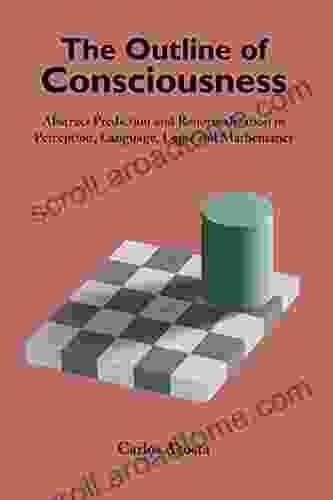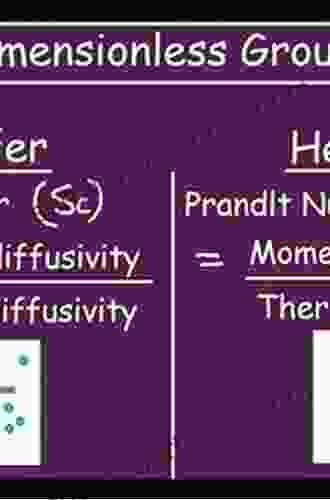Abstract Prediction And Renormalization In Perception Language Logic And

Table of Contents
- Abstract Prediction
- Renormalization
- Perception
- Language
- Logic
- Mathematics
- Complexity
- Uncertainty
- Survival
In Free Download to survive in a complex and uncertain world, we must be able to predict the future. This is true for all organisms, from the simplest bacteria to the most complex humans. We predict the future in Free Download to avoid danger, to find food, and to reproduce.
5 out of 5
| Language | : | English |
| File size | : | 4739 KB |
| Text-to-Speech | : | Enabled |
| Screen Reader | : | Supported |
| Enhanced typesetting | : | Enabled |
| Word Wise | : | Enabled |
| Print length | : | 222 pages |
| Lending | : | Enabled |
Abstract prediction is the ability to predict the future without having direct experience of it. We can predict the future based on our past experiences, our knowledge of the world, and our logical reasoning abilities.
Renormalization is the process of adjusting our predictions based on new information. As we learn new things, we must update our predictions in Free Download to reflect our new knowledge.
Perception, language, logic, and mathematics are all tools that we use to make abstract predictions. Perception allows us to gather information about the world around us. Language allows us to communicate our predictions to others. Logic allows us to reason about our predictions and to draw s. Mathematics allows us to make precise predictions about the future.
In this book, I will argue that abstract prediction and renormalization are fundamental to all cognitive processes. I will show how these processes are used in perception, language, logic, and mathematics. I will also discuss the implications of these processes for our understanding of complexity, uncertainty, and survival.
Abstract Prediction
Abstract prediction is the ability to predict the future without having direct experience of it. We can predict the future based on our past experiences, our knowledge of the world, and our logical reasoning abilities.
For example, we can predict that the sun will rise tomorrow even though we have never seen it rise before. We can predict this because we know that the sun has always risen in the past and because we have no reason to believe that it will not rise tomorrow.
Abstract prediction is essential for survival. It allows us to avoid danger, to find food, and to reproduce. Without the ability to predict the future, we would be constantly at the mercy of our environment.
Renormalization
Renormalization is the process of adjusting our predictions based on new information. As we learn new things, we must update our predictions in Free Download to reflect our new knowledge.
For example, if we see a black cloud in the sky, we might predict that it will rain. However, if we then see the sun come out, we will need to update our prediction and predict that it will not rain.
Renormalization is essential for accurate prediction. It allows us to take into account new information and to adjust our predictions accordingly.
Perception
Perception is the process of gathering information about the world around us. We perceive the world through our senses: sight, hearing, touch, taste, and smell.
Perception is essential for abstract prediction. It allows us to gather the information that we need to make predictions about the future.
For example, we can predict that a ball will bounce if we see it fall to the ground. We can predict this because we have seen balls bounce in the past and because we have no reason to believe that this ball will not bounce.
Language
Language is a system of communication that allows us to share our thoughts and ideas with others. Language is essential for abstract prediction because it allows us to communicate our predictions to others.
For example, we can tell someone that we predict it will rain tomorrow. This allows them to take precautions to avoid getting wet.
Language is also essential for renormalization. It allows us to share new information with others and to update our predictions accordingly.
For example, if we see someone else wearing a raincoat, we might ask them why. They might tell us that they predict it will rain. This information will allow us to update our own prediction and to take precautions to avoid getting wet.
Logic
Logic is the study of reasoning. Logic provides us with the tools that we need to draw s from our premises.
Logic is essential for abstract prediction because it allows us to reason about our predictions and to draw s.
For example, we can use logic to predict that if it is raining, the ground will be wet. We can do this by using the following syllogism:
1. If it is raining, the ground will be wet. 2. It is raining. 3. Therefore, the ground will be wet.
Logic allows us to make predictions even when we do not have direct experience of the future.
Mathematics
Mathematics is the study of numbers, quantities, and shapes. Mathematics is essential for abstract prediction because it allows us to make precise predictions about the future.
For example, we can use mathematics to predict the trajectory of a ball that is thrown in the air. We can do this by using the following formula:
y = -0.5 * g * t^2 + v * t + h
where:
* y is the height of the ball at time t * g is the acceleration due to gravity * v is the initial velocity of the ball * h is the initial height of the ball
Mathematics allows us to make predictions about the future that are more precise than we could make without it.
Complexity
The world is a complex place. There are many factors that can affect the future, and it is often difficult to predict what will happen.
Complexity makes abstract prediction difficult, but it does not make it impossible. We can use the tools of perception, language, logic, and mathematics to make abstract predictions in complex environments.
For example, we can use weather forecasting models to predict the weather for the next day. These models take into account a large number of factors, such as the temperature, humidity, and wind speed. They use this information to make predictions about the future weather.
Uncertainty
The future is uncertain. We cannot be sure what will happen, even if we use the best tools available to us.
Uncertainty makes abstract prediction difficult, but it does not make it impossible. We can use the tools of perception, language, logic, and mathematics to make abstract predictions in uncertain environments.
For example, we can use risk assessment models to predict the likelihood of a particular event occurring. These models take into account a large number of factors, such as the probability of the event occurring and the potential consequences of the event. They use this information to make predictions about the future risk of the event.
Survival
Abstract prediction and renormalization are essential for survival. They allow us to avoid danger, to find food, and to reproduce.
Without the ability to predict the future, we would be constantly at the mercy of our environment. We would not be able to avoid danger, to find food, or to reproduce.
Abstract prediction and renormalization are fundamental to all
5 out of 5
| Language | : | English |
| File size | : | 4739 KB |
| Text-to-Speech | : | Enabled |
| Screen Reader | : | Supported |
| Enhanced typesetting | : | Enabled |
| Word Wise | : | Enabled |
| Print length | : | 222 pages |
| Lending | : | Enabled |
Do you want to contribute by writing guest posts on this blog?
Please contact us and send us a resume of previous articles that you have written.
 Book
Book Novel
Novel Page
Page Chapter
Chapter Text
Text Story
Story Genre
Genre Reader
Reader Library
Library Paperback
Paperback E-book
E-book Magazine
Magazine Newspaper
Newspaper Paragraph
Paragraph Sentence
Sentence Bookmark
Bookmark Shelf
Shelf Glossary
Glossary Bibliography
Bibliography Foreword
Foreword Preface
Preface Synopsis
Synopsis Annotation
Annotation Footnote
Footnote Manuscript
Manuscript Scroll
Scroll Codex
Codex Tome
Tome Bestseller
Bestseller Classics
Classics Library card
Library card Narrative
Narrative Biography
Biography Autobiography
Autobiography Memoir
Memoir Reference
Reference Encyclopedia
Encyclopedia Carolyn Barber
Carolyn Barber Bruce R Hopkins
Bruce R Hopkins Bubun Dian
Bubun Dian Carol Hand
Carol Hand Janet I Mueller
Janet I Mueller Carrie Nelson
Carrie Nelson Tanja Mickwitz
Tanja Mickwitz Ivan Antic
Ivan Antic Kolie Crutcher
Kolie Crutcher Carlo Di Carlo
Carlo Di Carlo Bryan A Follis
Bryan A Follis Carol K Anthony
Carol K Anthony Buntara Sthenly Gan
Buntara Sthenly Gan Carla Jean Whitley
Carla Jean Whitley Michael J Tougias
Michael J Tougias C S Brookes
C S Brookes Mitch Stokes
Mitch Stokes Susan Young
Susan Young Clare Carlisle
Clare Carlisle Bruno Ameduri
Bruno Ameduri
Light bulbAdvertise smarter! Our strategic ad space ensures maximum exposure. Reserve your spot today!
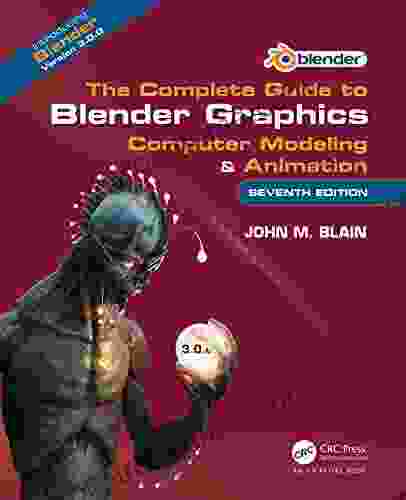
 Christopher WoodsUnveiling the Secrets of 3D Creation: The Complete Guide to Blender Graphics
Christopher WoodsUnveiling the Secrets of 3D Creation: The Complete Guide to Blender Graphics Holden BellFollow ·19.9k
Holden BellFollow ·19.9k Albert ReedFollow ·5.5k
Albert ReedFollow ·5.5k David Foster WallaceFollow ·3.2k
David Foster WallaceFollow ·3.2k Roger TurnerFollow ·5.3k
Roger TurnerFollow ·5.3k Angelo WardFollow ·2.4k
Angelo WardFollow ·2.4k Colt SimmonsFollow ·15.3k
Colt SimmonsFollow ·15.3k Morris CarterFollow ·10.2k
Morris CarterFollow ·10.2k Clarence MitchellFollow ·17k
Clarence MitchellFollow ·17k
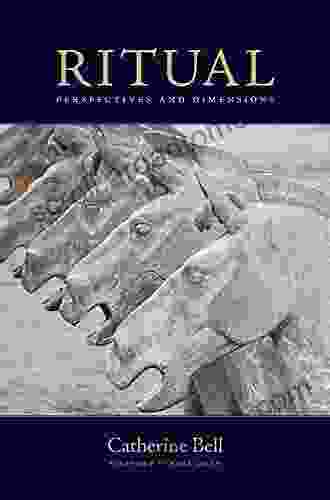
 Shawn Reed
Shawn ReedEmbark on a Transformative Journey: Discover Ritual...
Delve into the Enigmatic World of...
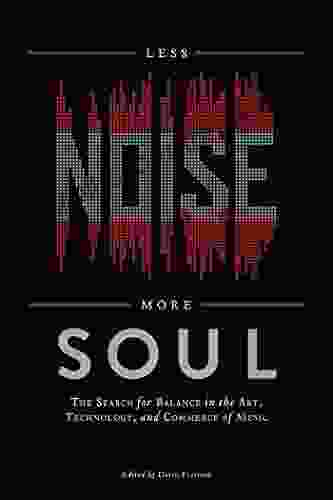
 Connor Mitchell
Connor MitchellUnleash Your Soul: A Journey to Less Noise, More Soul
Embrace the Power of Silence...
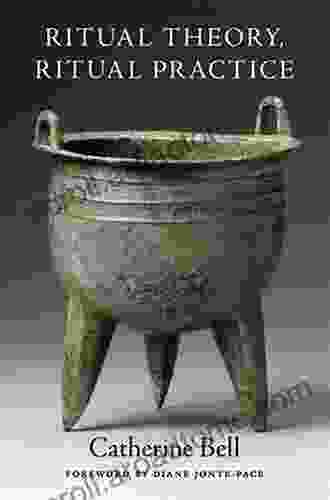
 Derek Cook
Derek CookRitual Theory, Ritual Practice: Unlocking the Secrets of...
Rituals have been an...

 Evan Hayes
Evan HayesStop the Itch: Simple Steps to Lasting Relief
Itching, an...

 Herman Mitchell
Herman MitchellThe Ultimate Premarital Guide: Your Essential Wedding...
Congratulations on your engagement! This is...
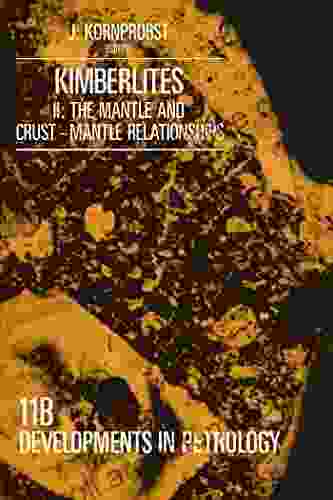
 DeShawn Powell
DeShawn PowellUnlocking the Enigma of the Mantle: A Deep Dive into "The...
Our planet,...
5 out of 5
| Language | : | English |
| File size | : | 4739 KB |
| Text-to-Speech | : | Enabled |
| Screen Reader | : | Supported |
| Enhanced typesetting | : | Enabled |
| Word Wise | : | Enabled |
| Print length | : | 222 pages |
| Lending | : | Enabled |


